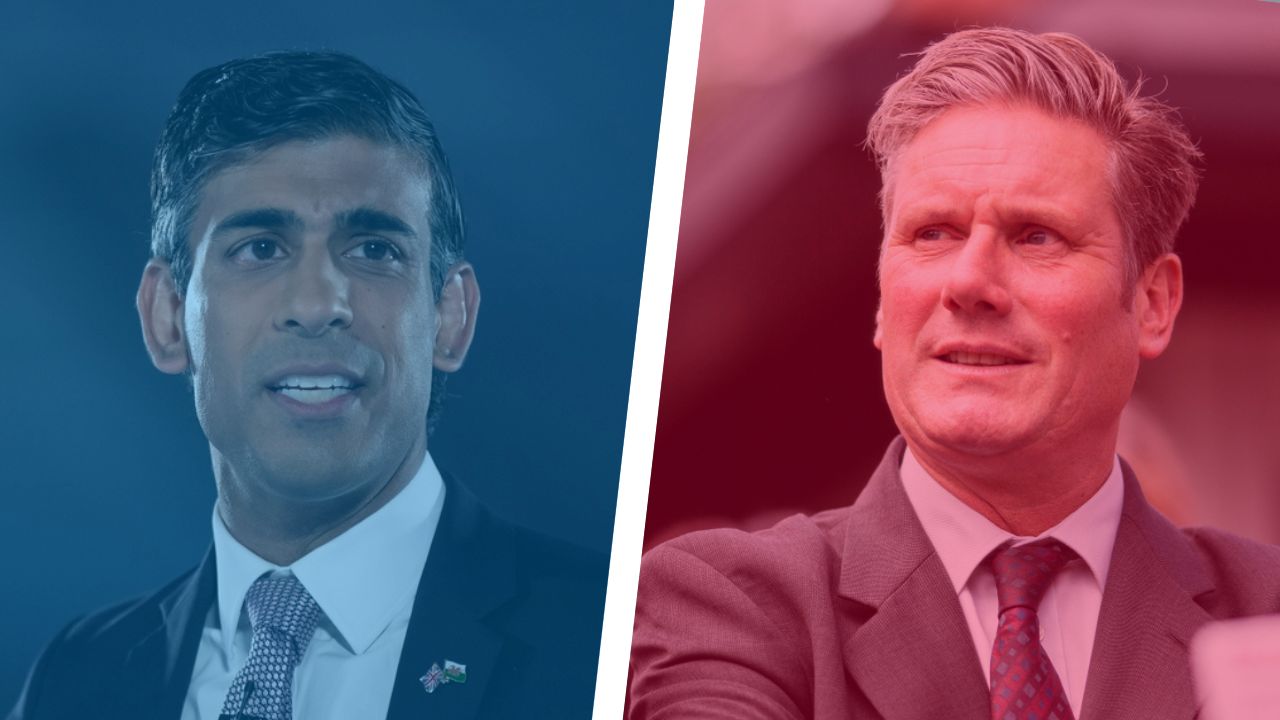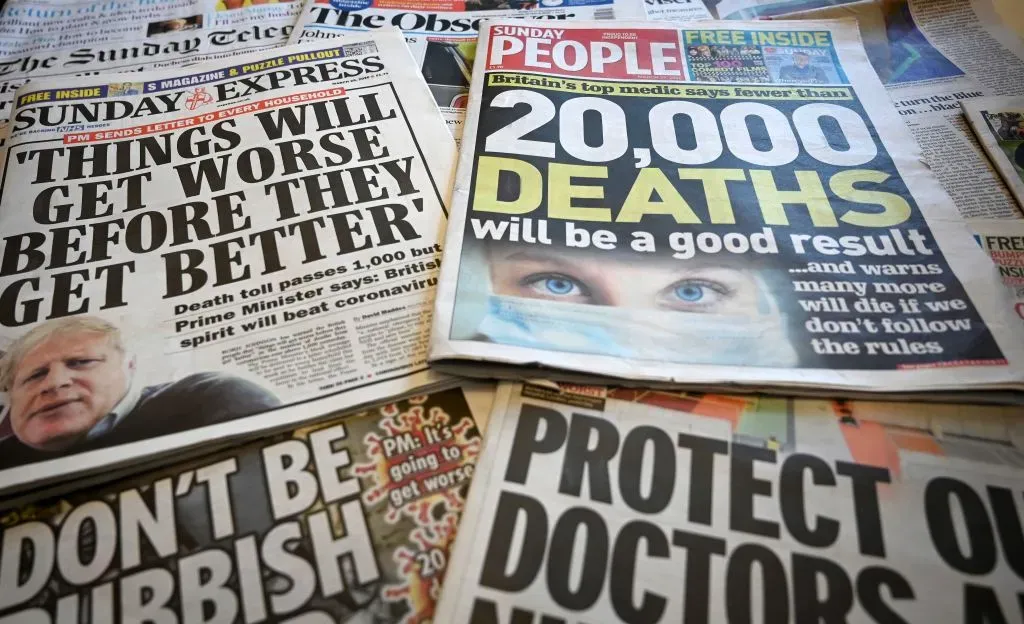Dismantling the Systematic Disinterest of the Working Class in the UK General Election- Your Vote DOES Matter.
The elite don't want you to vote on Thursday the 4th July, please read this to find out why you should!

"All politicians are liars" is a sentiment that resonates deeply across UK households, growing stronger over the years in the face of economic recessions, rising crime rates, and the systematic dismantling of public services despite increasing taxes. The current Conservative government has pushed taxes to an all-time high amid a cost of living crisis, while disillusionment with Labour remains following the global economic crash of 2009. This has left working-class voters feeling cynical and disengaged, struggling to find a political party that can reignite their passion and represent their interests.
But have you ever paused to consider why we instinctively find politics dull and remain detached from it, even though it shapes many aspects of working-class life? Unfortunately, this barely scratches the surface of why people lack interest in current affairs and there are many reasons to consider before disregarding your vote on Thursday, July 4th.
Education
The truth is, the elite prefer your silence. Public education in Britain began with the Education Act of 1870, designed to create a compliant workforce for industry and improve living conditions for the growing population. In contrast, politicians mainly came from private schools, highlighting a systematic educational divide, still prevalent today.
Since political discourse has been largely absent from the public curriculum, many students rely primarily on their parents' views for their political opinions, which can lead to a lack of independent political thought and engagement. Because the working classes have been shielded from this knowledge by the establishment , generations of voters have been casting their decisions blindly, basing their knowledge on unreliable, biased sources such as newspapers.
Less than a third of public schools offer citizenship classes while 28% offer nothing at all. [1] Meanwhile, a 2021 survey from Stand Out UK shows that over 70% of young people would welcome a Politics GCSE to give them a basic framework to understand our societal makeup. [2] The ever growing politicisation of our youth demonstrates how eager they are to start having a say in their future, with Labour leader, Sir Kier Starmer pledging in his manifesto to grant 16 year old's the vote. [3] On the contrary, Rishi Sunak has sought to depoliticise young people by attempting to reintroduce National Service to instill obedience into our next working generation rather than nurturing their personal ambitions. [4]
See Kier Starmer and Rishi Sunak's initial electoral debate highlights, including Starmer's comments about National Service at 6:18
However, politicians still aren't addressing the issue of a lack of education on the matter. Perhaps mature voters would feel more comfortable with the reduction of a voting age the applicants were to undertake this qualification such as a GCSE before being eligible to have their say in elections. Or do those who control our nation want to keep politics to themselves?
Your vote is important because it is a symbol for working people to become more involved in politics, not just so generations after us can be educated, but so you can join a journey in learning yourself. After all, it isn't boring, it has just been designed for us to become workers rather than thinkers.
Sources: Newspapers and the Media

Censorship in media is also a big issue that effects the portrayal of our political entities and sways public perception. If education is the reason we are disinterested in politics, the media amplifies our misconceptions about the institution. If we refer back to the common notion that "all politicians are liars", it is because they are demonised in the press.
Therefore, politicians are often careful with their words due to the pervasive threat of smear campaigns. The media uses partial truths and exaggerations to damage reputations and influence public opinion, making it crucial for politicians to navigate their speech cautiously. [5] It is essential that we do not fall victim to a headline.
Wrongly, the UK newspapers are often hedge funded by parties; it often becomes a big part of electoral campaigns to get certain outlets onside, depending on the demographic they need to convince. For instance, although this Conservative parliament have already hiked taxes on pensioners throughout their tenure, they have pledged to place a "triple-lock" on pensions, in an attempt to deceive older voters, using the Sun Newspaper as a mouthpiece for this. [6]
Newspapers, historically and currently, have agendas that often align with the interests of their owners and advertisers. The rise of press barons like Alfred Harmsworth, who launched the Daily Mail in 1896, marked the beginning of newspapers being used as tools for both entertainment and political influence. [7] Since then, propaganda has been embedded into working class homes as the tabloids inject their prerogative into the minds of it's consumer through the mask of 'news'.
It would be foolish to take anything, written by a journalist, that hasn't been substantiated by an independent source at face value. Here, I want to teach you to do your own reading and make a judgement for yourself before voting. Alternative sources are available in the form of academia, statistics, case studies, and direct statements from Political figureheads.
Which ever way you chose to vote, doing so with a well rounded opinion is better than heading into it ill-informed. We have a long term solution to this, education; short term, here are some sources you can use:
1) Ground News (iOS or Android) -
To decipher biased news headings, use a free version or a yearly subscription to the Ground News app, which gives an objective alternative to reading the news.
2) Google Scholar-
Use 'Google scholar' to find academia, people that have studied politics for a living, through university presses. https://scholar.google.co.uk/
3) Independent Studies-
For breakdowns of manifesto's and other policies through surveys and case studies, use 'Shout Out UK' or 'The Institute of Fiscal Studies', or 'survation'.
4) Government Statistics-
Use 'YouGov' for statistics, 'The Public Accounts Committee' for taxes and budget, or 'Hansard' for transcripts of parliamentary debates.
In conclusion, the widespread belief that politics is boring stems from an outdated education system that does not adequately cover politics, resulting in the masses misconceiving the nationwide issues around them. Additionally, our reliance on third-party newspapers further hinders our ability to form independent opinions, and forced to use anecdotal experiences to account for national scale issues. Surely we now can see this is not productive? We must coordinate a mass working class engagement with politics to overcome this issue and push for increased awareness in current affairs.
If you were interested in any of this please feel free to subscribe and drop a comment with your opinions.
Sources used in this Article
[1+2]https://www.shoutoutuk.org/2021/01/19/first-ever-appg-on-political-literacy-launches-as-almost-three-quarters-of-young-people-call-for-government-and-politics-gcse/
[3]The Labour Party Manifesto, 2024. https://labour.org.uk/wp-content/uploads/2024/06/Labour-Party-manifesto-2024.pdf
[4] The Conservative Party Manifesto, 2024. https://manifesto.conservatives.com/
[5] Attkisson, S., 2017. The Smear: How Shady Political Operatives and Fake News Control What You See, What You Think, and How You Vote. New York: Harper.
[6]The Sun, 2023. Rishi Sunak promises pensions super triple lock. [online] Available at: https://www.thesun.co.uk/news/28158921/rishi-sunak-promises-pensions-super-triple-lock/
[7]https://theconversation.com/rupert-murdoch-and-the-rise-and-fall-of-the-press-barons-how-much-power-do-newspapers-still-have-213283
